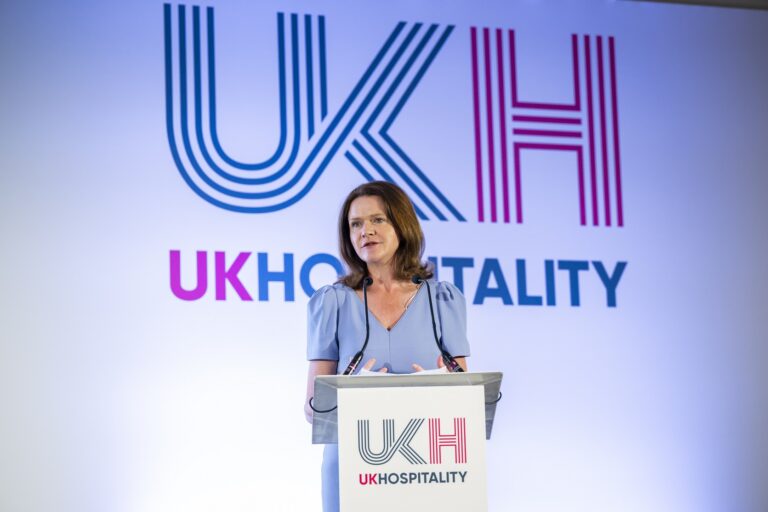The government has agreed to explore an alternative approach to its controversial Extended Producer Responsibility (EPR) scheme, UKHospitality has revealed.

UKHospitality chief executive Kate Nicholls
Due to what the trade association says are poorly-drafted rules that classify some packaging sold in hospitality, like bottles of beer and wine or cardboard packaging in QSR (quick-service restaurants), as household waste, many venues are being forced to pay twice for recycling. They are being passed on an EPR fee via their suppliers, and they are having to pay to recycle their waste commercially.
At a roundtable with Mary Creagh MP, the Defra minister responsible, it was agreed that the department would work with the sector to explore a solution to this issue, in line with proposals UKHospitality put to them last year.
The trade association is hopeful that a solution can be brought forward for the second year of the scheme.
“I’m pleased that Defra is finally properly engaging with this issue and acting on our concerns,” said UKHospitality chief executive, Kate Nicholls. “UKHospitality has been campaigning on this issue for over a year and warning of the unfair and costly impact it will have on hospitality businesses.
“We have put forward clear proposals that can solve this issue, which include an exemption for closed-loop hospitality businesses, and I hope that we can work at pace with the government to put something in place for the second year of the scheme.”
She added: “Of course, this is not an ideal timeline for businesses affected this year. In light of the government acknowledging that there is a problem that needs solving, I urge hospitality suppliers to recognise this and not pass additional EPR costs through to operators.”
UKHospitality’s proposed solution
- Direct supply of packaging to hospitality businesses and exclusive hospitality wholesalers, including pub companies, is exempt from EPR
- Where a premise sells packaged product for consumption both on- and off-premises, there needs to be a mechanism that allows for EPR to be paid on only the volume taken off-premises.




